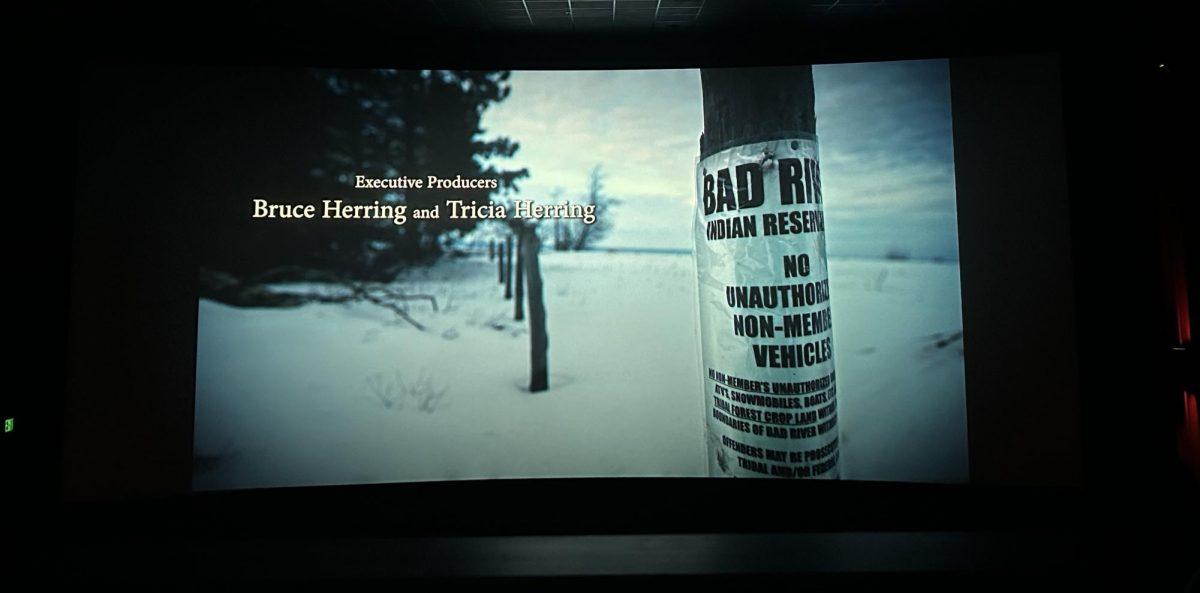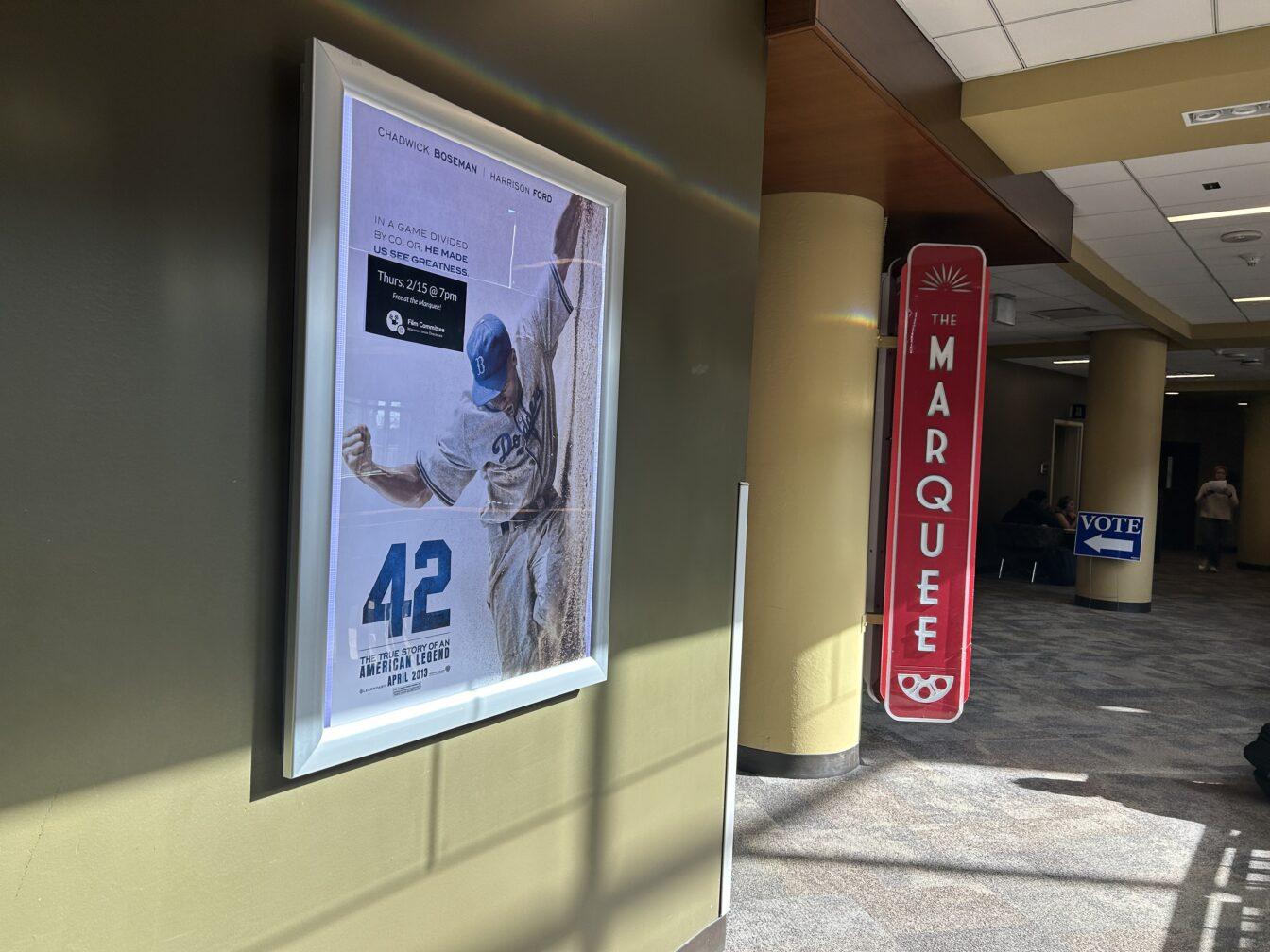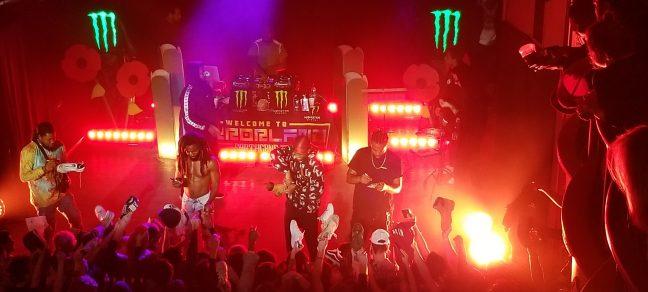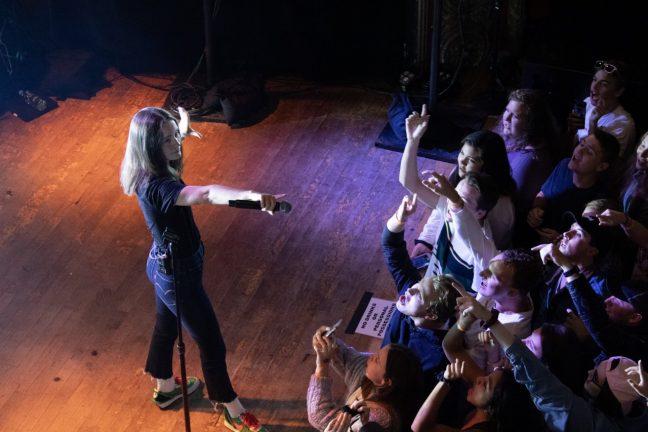Compelling and emotional, “J. Edgar” will captivate audiences. Director Clint Eastwood (“Hereafter”) and writer Dustin Lance Black (“Milk”) outdid themselves in recounting the remarkable life of the late J. Edgar Hoover, who served nearly 50 years as the face of law enforcement in America.
Leonardo DiCaprio plays the difficult role of Hoover, a man bottling up his sensitive emotions and sexual denial to maintain his image as a stern and innovative crime stopper.
It all begins in 1919, when precocious 24-year-old Hoover starts working for the Justice Department. He immediately finds flaws in the way crime is handled and deems Americans unsafe, especially from communism, which he considers a “disease,” rather than a political party.
Hoover serves as a narrator throughout the movie, recalling past crimes he has solved to teach young agents how legends are made. However, as the tale unfolds, it becomes clear that Hoover’s reality is deluded with subconscious musings actually making the arrests, rather than strictly acting as the brains behind the operations.
The film spotlights not only Hoover’s successes, like normalizing fingerprinting and mastering the Dewey Decimal System, but also his weaknesses and how he corruptly maintains absolute power within the Justice Department over a long period of time.
For instance, Hoover was not above using blackmail to obtain the results he desired. He possessed a secret love letter written to First Lady Eleanor Roosevelt from her female lover and a voice recording of President John F. Kennedy having an affair. This element of including real pieces of America’s most shocking history in the film is captivating, informative and attention-grabbing.
As a whole, Eastwood’s direction is brilliant. Audiences will wonder if the film is shot from Hoover’s perspective or his peers. It is not until the end that one questions Hoover’s direct involvement with the war against communists, the search for the kidnapper of the Lindbergh baby and the prosecution of outlaws like John Dillinger.
The perceived integrity and value of Hoover’s work seems reliant on the support of his mother (Judi Dench, “Pirates of the Caribbean: On Stranger Tides”) and the presence of his number two man, Clyde Tolson (Armie Hammer, “The Social Network”).
Hoover uses Tolson as a crutch, never giving him the power to be a stand-alone leader, but exploiting him to support his own control within the Bureau. As the film progresses, it is clear there is unexpressed sexual tension between the men, both of who are peculiarly uninterested in women and a social life outside of each other’s company. Despite maintaining separate residences, they worked side by side, ate meals together daily and went on joint vacations.
No concrete relationship is ever established between them, but they develop a deep understanding of each other that is not revealed or understood by any other characters, with the possible exception of Hoover’s loyal assistant Ms. Gandy (Naomi Watts, “Dream House”). But near its end, “J. Edgar” takes a romantic turn when Hoover and Tolson express a long-awaited yet heartwarming gesture of love.
Beyond the script and direction conveying a compelling message, “J. Edgar” has interesting and powerful camerawork, spot-on period costumes and outstanding makeup.
The camera angles were used to make Hoover appear more dominant. They often shot at low angles that made him appear both large in size and powerful in personality. And as the movie takes viewers through different time periods, the costumes and scenery change fluidly.
Even as the movie’s plot travels forward in time, Hoover, Tolson and Gandy remain pivotal. At times, it is hard to believe that the man playing Hoover is in fact Leonardo DiCaprio because his visage and acting as an old man is so convincing.
The film is compelling, emotional, informational and downright enthralling. With a star-studded cast backed up by great direction, “J. Edgar” is a must-see film of the year.
Four stars out of five



















